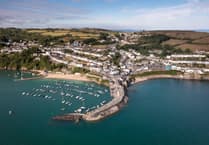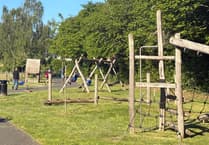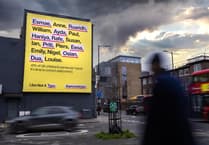Airbnb has warned property owners could check out of the Welsh tourism market for good over “rushed” licensing rules which could cost hosts up to an estimated £15m.
The tech company gave evidence to the Senedd economy committee today (November 20) on the Welsh Government’s plans to license self-contained, self-catering accommodation.
Carl Thomson, UK public policy manager for Airbnb, described licensing plans as a “blunt and unnecessary tool” that is disproportionate to any risks that might be faced by guests.
“In our view, there’s no evidence that a licensing regime is needed in Wales,” he said.
“Or that it will do anything other than cause immense harm to local accommodation providers, reduce consumer choice and push up costs for guests.”
In written evidence, Airbnb estimated the bill could cost Welsh hosts between £4.5m and £15m in reduced income, with “immeasurable” impacts on the wider Welsh economy.
Mr Thomson told the committee experience of short-term letting regulation from around the world shows licensing schemes do not solve the problem they are intended to fix.
He said: “Of course, safety matters but it’s important to remember that problems are exceptionally rare. Our data… tells us accommodation in Wales actually has a much stronger safety record compared with other parts of the UK and internationally.”
Mr Thomson explained that of the hundreds of thousands of inbound trips booked to Wales through Airbnb in 2024/25 – only 39 safety incidents were reported, equating to 0.004 per cent.
He added that none of the incidents related to carbon monoxide, fire safety nor electrical safety, with only a single reported gas-related concern.
He told Senedd members: “If the purpose of this legislation is to ensure the health, safety and quality of the sector, there’s real questions about whether it’s necessary or needed.”
Fiona MacConnacher, head of public affairs for the UK and Ireland at Booking.com, supported proportionate regulation but suggested the bill had been rushed through.
Warning of unintended consequences, she said: “We’re talking about Welsh businesses here and if we affect those businesses, we don’t just affect those self-catering businesses: we affect the restaurants, the pubs, the shops.”
Barbara Griffiths, who runs North Wales Holiday Cottages, warned government officials have told her they have not had time to add sectors beyond self-contained, self-catering lets.
“It’s rushed and I feel it should be delayed,” she said.
Ms Griffiths argued the bill would not create a level-playing field, as claimed by ministers, because it does not cover other types of visitor accommodation.
Mr Thomson warned booking intermediaries would become legally liable for the accuracy of registration numbers provided by accommodation providers under the bill.
He told the committee the first Airbnb learned about this aspect was when the bill was published.
He said: “That approach is inconsistent with established practice elsewhere in the UK and around the world.”
He argued registration plans previously passed by the Senedd can achieve all of the same aims without the cost, friction and bureaucracy that layering licensing on top brings.





Comments
This article has no comments yet. Be the first to leave a comment.